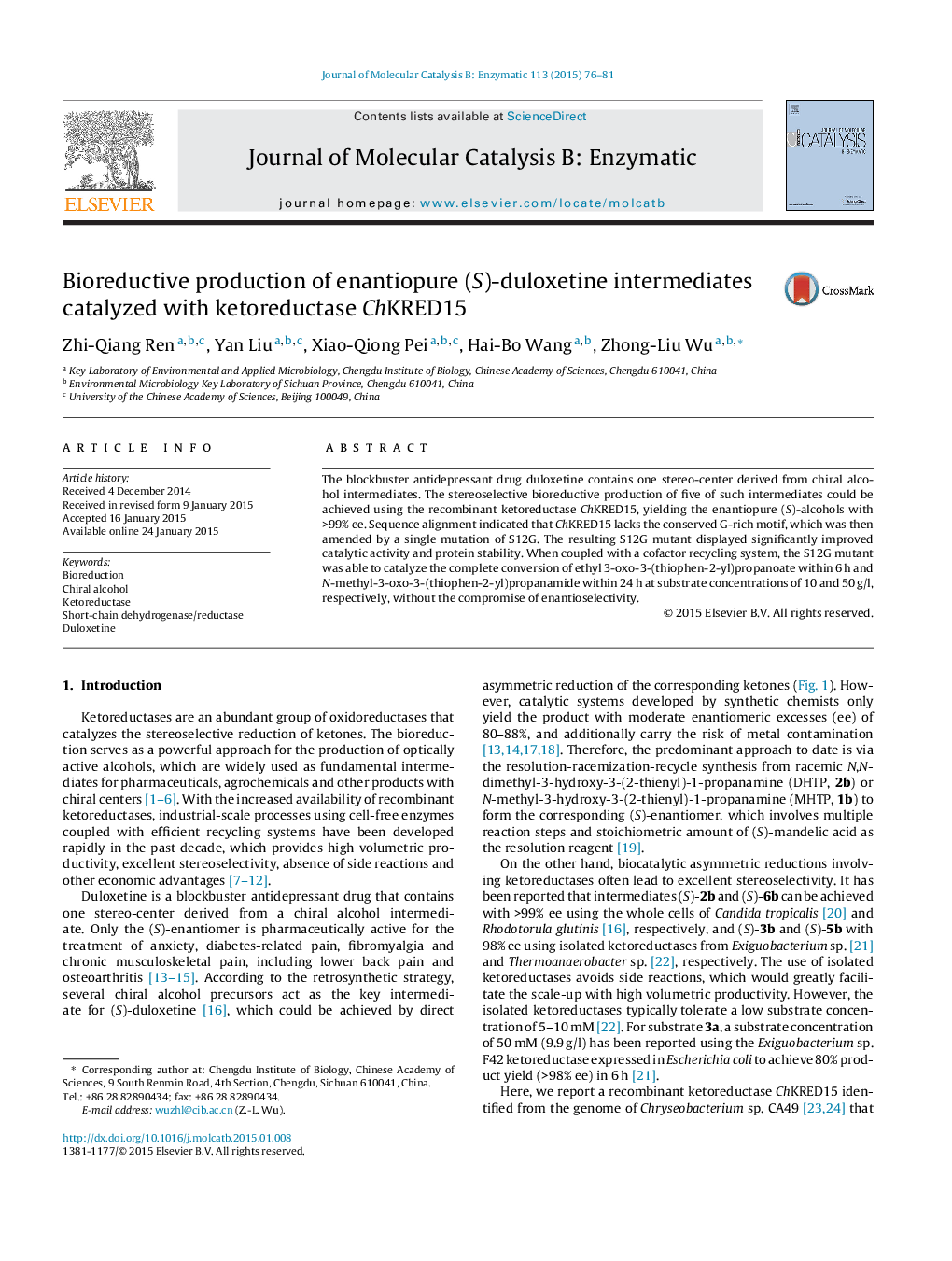| Article ID | Journal | Published Year | Pages | File Type |
|---|---|---|---|---|
| 69411 | Journal of Molecular Catalysis B: Enzymatic | 2015 | 6 Pages |
•Ketoreductase ChKRED15 catalyzed the bioreduction of five duloxetine intermediates.•(S)-Alcohols were achieved with >99% ee for all five intermediates.•The S12G mutant was constructed to recover the G-rich motif.•The S12G mutant displayed improved activity and stability.•Up to 50 g substrate/l could be completely reduced within 24 h.
The blockbuster antidepressant drug duloxetine contains one stereo-center derived from chiral alcohol intermediates. The stereoselective bioreductive production of five of such intermediates could be achieved using the recombinant ketoreductase ChKRED15, yielding the enantiopure (S)-alcohols with >99% ee. Sequence alignment indicated that ChKRED15 lacks the conserved G-rich motif, which was then amended by a single mutation of S12G. The resulting S12G mutant displayed significantly improved catalytic activity and protein stability. When coupled with a cofactor recycling system, the S12G mutant was able to catalyze the complete conversion of ethyl 3-oxo-3-(thiophen-2-yl)propanoate within 6 h and N-methyl-3-oxo-3-(thiophen-2-yl)propanamide within 24 h at substrate concentrations of 10 and 50 g/l, respectively, without the compromise of enantioselectivity.
Graphical abstractFigure optionsDownload full-size imageDownload as PowerPoint slide
